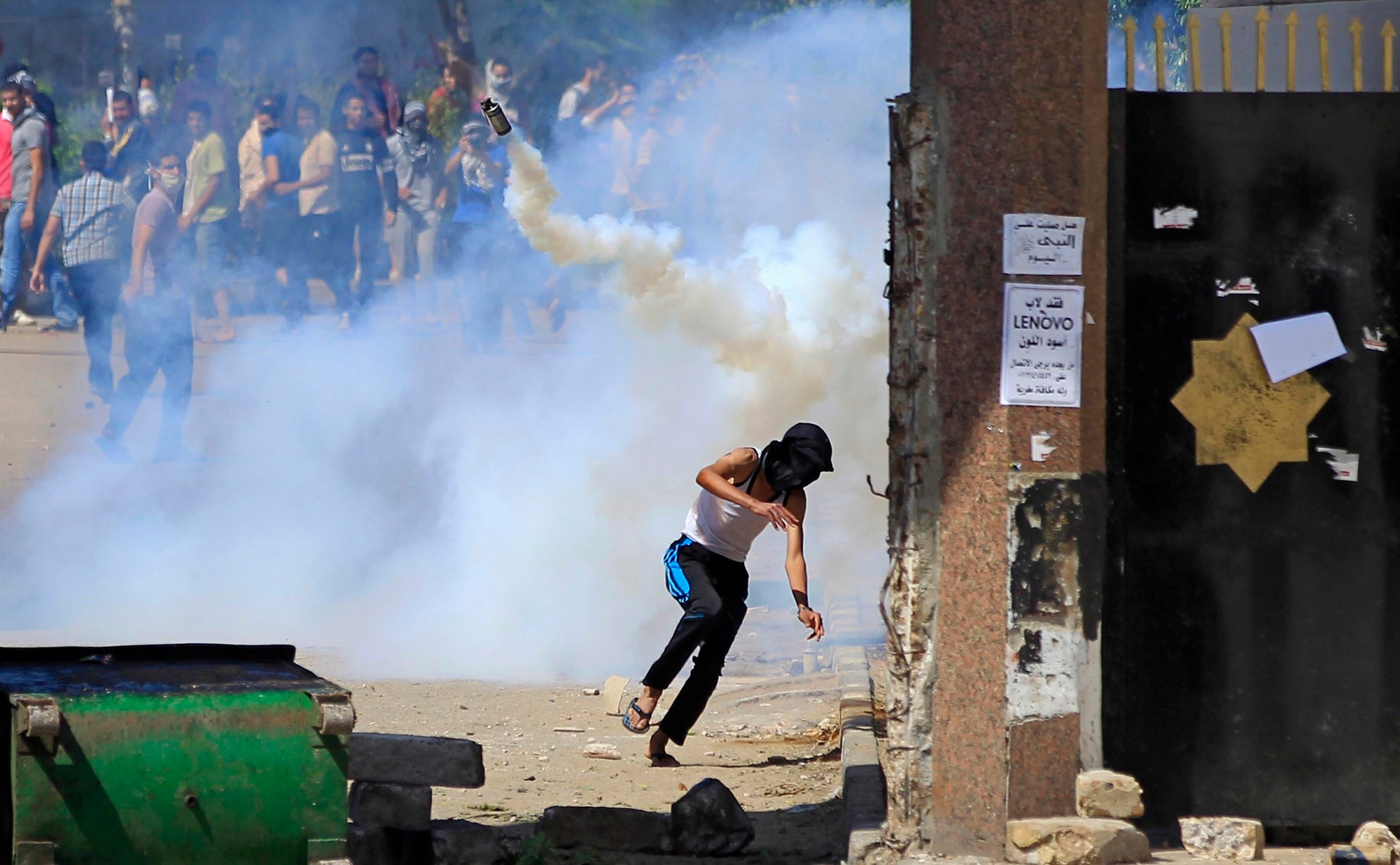
Egypt’s Muslim Brotherhood is no stranger to official repression. The Islamist organization has been subject to government purges for most of its 86-year history. But even for a group accustomed to operating outside the law, the Brotherhood’s current circumstances are dire.
Starting with the ousting of longtime Brotherhood official Mohamed Morsi from the presidency last July, the organization that dominated Egyptian politics for the first two years after the 2011 revolution has been almost completely purged from public life. Finding its way out of this darkness will require a level of self-analysis and public humility that the group has, so far, avoided.
If the Brotherhood has any hope of once again playing a role in the governance of Egypt, it needs to acknowledge—to itself and to the rest of Egypt—that its downfall was partially its own fault. Through a combination of arrogance, incompetence and ham-fisted politics, Morsi and the Brotherhood managed to systematically alienate every potential ally they had.
That has left them vulnerable as they enter a particularly dangerous period. Abdul Fattah al-Sisi, the former Defense Minister who ousted Morsi, is widely expected to win the presidency in this month’s election. In his first-ever television interview earlier this month, al-Sisi flatly stated, “There will be nothing called the Muslim Brotherhood during my tenure.”
That scenario would not only be bad for the Brotherhood, it would also be bad for Egypt. Even at the current nadir of its popularity, the Brotherhood still represents at least 10% of the Egyptian population, analysts estimate, and holds the sympathies of roughly another 10%. Egypt’s history suggests that disenfranchisement can lead to radicalization and violence.
The interim government—led by al-Sisi—officially declared the Brotherhood a terrorist organization in December. The vast majority of its senior leadership has been jailed. What remains of the senior leadership has scattered into a diaspora centered in Istanbul, London and Doha.
Observers and allies of the Brotherhood say the group’s short-term strategy is to play a waiting game: keeping up the street-level pressure inside Egypt with ongoing protests while marshaling support inside and outside Egypt and waiting for al-Sisi’s popularity to wane.
One of the key aspects of that strategy going forward is rekindling alliances with other revolutionary elements opposed to al-Sisi. But those secularist groups are exactly the people the Brotherhood alienated over the course of Morsi’s divisive year in power. Nine months after Morsi was ousted, the bitterness between the former revolutionary allies remains.
“We are offering our hand. Each side has done a lot of damage to the other side,” says Dr. Islam Abdel-Rahman, a former adviser to the Brotherhood-affiliated Freedom and Justice Party who now lives in the U.K. “Each side needs to make a leap of faith.”
In the wake of Morsi’s downfall, the group has cast itself as the defender of the principles of the 2011 revolution. That has further irritated secular revolutionaries who view the Brotherhood as having betrayed those principles at almost every opportunity in the course of a cynical and disastrous postrevolutionary power grab.
Dr. Wael Haddara, a former senior political adviser to Morsi, says many of those secularist revolutionaries are essentially waiting for a series of public apologies before they will even deal with the Brotherhood again. And in recent months, Haddara says, the Brotherhood has in fact begun internally debating the mistakes and missteps of the Morsi era.
“It’s happening now. I’m hearing more and more self-criticism,” says Haddara, an emergency-room doctor who now lives in Canada. But those discussions are so far being held behind firmly closed doors—not in public, which is where they need to take place.
If the Brotherhood truly wants to emerge from the political wilderness, it will have to find a way to heal the rift with secularist revolutionaries who right now tend to see al-Sisi as the lesser of two evils. More than that, it will have to explain to all Egyptians why they should ever trust the Islamists again. The longer the Brotherhood takes to apologize, the harder it will be for Egyptians to forgive.n
Khalil is a Cairo-based journalist and author of Liberation Square: Inside the Egyptian Revolution and the Rebirth of a Nation
More Must-Reads From TIME
- The 100 Most Influential People of 2024
- The Revolution of Yulia Navalnaya
- 6 Compliments That Land Every Time
- What's the Deal With the Bitcoin Halving?
- If You're Dating Right Now , You're Brave: Column
- The AI That Could Heal a Divided Internet
- Fallout Is a Brilliant Model for the Future of Video Game Adaptations
- Want Weekly Recs on What to Watch, Read, and More? Sign Up for Worth Your Time
Contact us at letters@time.com